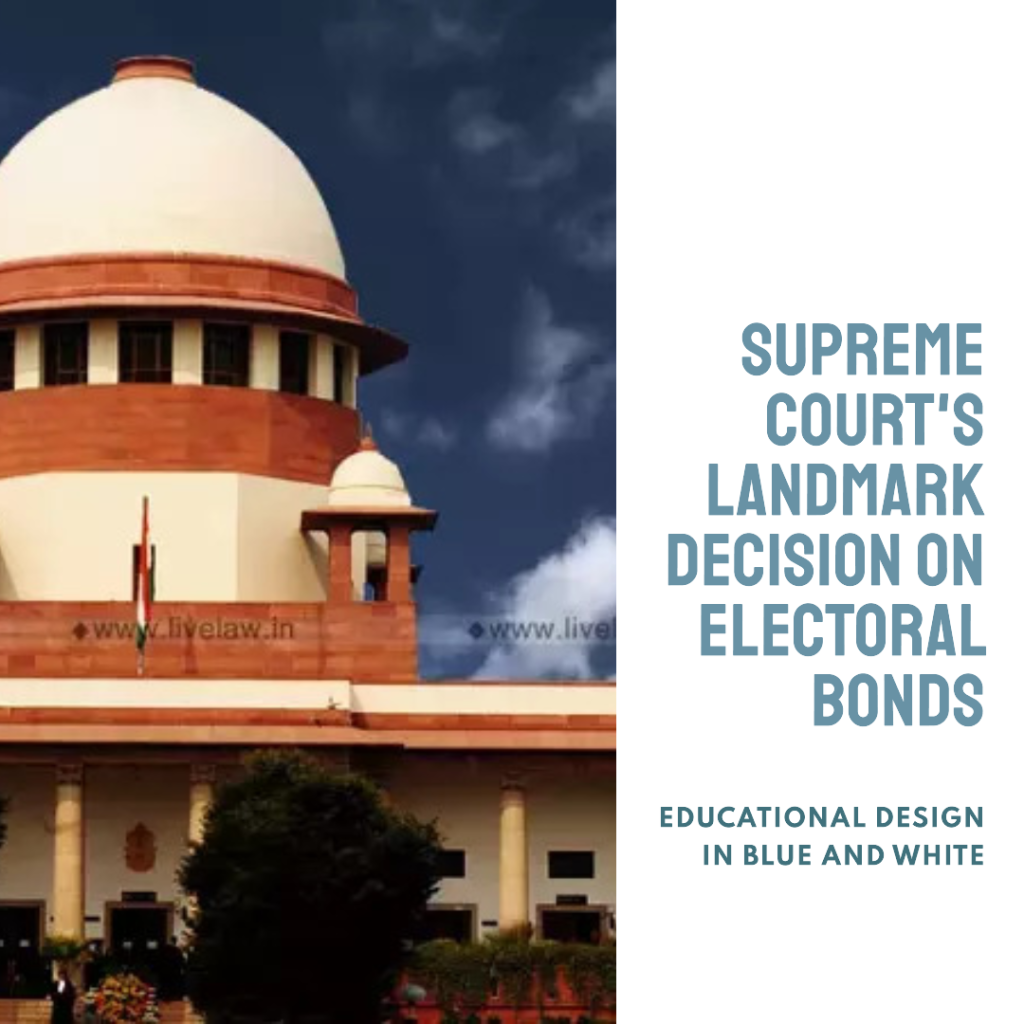
Introduction: In a recent development, the Supreme Court has made a significant ruling in the electoral bond case, dealing a substantial blow to the State Bank of India (SBI). This decision holds immense importance for the transparency and integrity of the electoral process in India. Let’s delve into the details and implications of this landmark judgment.
Background: The case involves the scrutiny of electoral bonds, a financial instrument used by political parties for receiving anonymous donations. The SBI, during the proceedings, had been instructed to provide details related to electoral bonds by June 30. However, the court dismissed this demand, emphasizing the urgency of sharing information within 24 hours.
Court Proceedings: The Constitution Bench, headed by Chief Justice of India D.Y. Chandrachud, conducted the hearing, where the court directed the SBI to furnish information on electoral bonds to the Election Commission expeditiously. Additionally, the court mandated the Election Commission to publish the relevant details on its official website by March 15.
Challenges Faced by SBI: Senior Advocate Harish Salve, representing SBI, argued for an extension until June 30, citing the complexity of gathering information on bond numbers, party details, and the time required to ensure accuracy. The court, however, pressed SBI to comply with immediate effect, stating the seriousness of the matter.
Implications for Political Transparency: The Supreme Court’s decision is a crucial step towards ensuring transparency in political funding. By demanding swift disclosure of electoral bond details, the court aims to foster accountability in the electoral system. This move has implications not only for financial transparency but also for the overall ethical conduct of political parties.
ADR’s Intervention: Apart from SBI, the Association for Democratic Reforms (ADR) has also filed a petition against the bank, alleging non-compliance with court orders and highlighting a disregard for the principles of transparency. ADR’s intervention underlines the broader societal concern for accountability and fairness in the democratic process.
Conclusion: As the Supreme Court takes a firm stance on electoral transparency, this ruling signals a positive shift towards a more open and accountable democracy. The decision reflects the judiciary’s commitment to upholding the principles of fairness and integrity in the electoral process, setting a precedent for ethical conduct in political funding.
In a broader context, this case invites a reevaluation of the electoral system and emphasizes the need for continuous reforms to strengthen democratic institutions. The coming days will likely see further developments in this case, shaping the landscape of political funding and accountability in India.









Leave a Reply